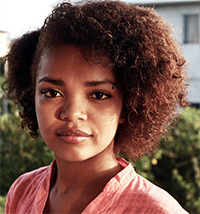I HAVE never spoken to President David Granger, but I have always admired him for some of the values he holds, which for the most part are inclusive and non-discriminatory.
In recent times, whenever someone in his Cabinet erred, I would think back to how pleased I was during Phagwah, when he was seen celebrating with Hindus; and it would calm me a bit, because a true leader represents all his people.
President Granger has always struck me as a very intelligent man. That’s why I found it disconcerting when I heard of his comments, made on the ‘Public Interest’, regarding decriminalisation of marijuana in Guyana. President Granger stated that decriminalisation of marijuana might be contradictory, given the Government’s efforts to reduce tobacco smoking.
I believe that this line of reasoning by the President is disappointing. I do not know whether the President realises that many youths lose opportunities, and elders have their lives interrupted for having small quantities of a drug that has been decriminalised and legalised elsewhere.
Almost every day, the courts are filled with young and old persons being charged — and sentenced to months and often years in jail — for small amounts of marijuana. According to the findings of the Commission of Inquiry (CoI) into the Camp Street Prison riot that claimed 17 lives following the March 3 fire, it takes $485,000 to house one prisoner per year. How much money is being wasted yearly to take away future opportunities from the nation’s youths for daring to burn a ‘spliff’?
What President Granger has failed to take into consideration is that, unlike marijuana, tobacco has no medicinal benefits; and unlike tobacco, marijuana has not been linked to cancer and various other health concerns.
Unlike marijuana, persons found with small amounts of tobacco are not placed into the prison system. I think one of the most interesting things in the debate about whether to legalise or decriminalise small quantities of marijuana is that we, as a Caribbean people, through the Rastafarian movement, are the ones who have popularised marijuana usage.
As one friend said: “When you think about the Caribbean, you think about sun and ‘weed’.”
So it is interesting to note that our leaders are still bickering among themselves, while world powers such as the United States of America and the United Kingdom, which would have learnt about marijuana from us, are already in the process of decriminalising and completely legalizing it.
One Caribbean island that is doing it right is Jamaica. Jamaica last year enacted the “Dangerous Drug (Amendment) Act 2015”, which decriminalised possession of less than two ounces of marijuana. Once someone is found with more than two ounces, they can be given a ticket that is similar in nature to that of a traffic ticket. They can also be arrested, charged and tried in court, and sentenced to imprisonment or fined if found guilty of having more than two ounces.
President Granger was worried that we were seeking to look at countries such as the USA, which are ahead of us in technology; but I think that if we look at Jamaica, maybe we can learn a few things that can be applied to our country. There should be focus, of course, on the possible consequences involved in its legalisation or decriminalisation, as the need to ensure safe supply and limitation of access to children is paramount, given that marijuana usage among children remains high. However, finding ways to regulate marijuana usage similar to how alcohol is regulated makes tremendously more sense than the continued criminalisation of it.
President Granger, this marijuana law is a draconian one that has too harsh penalties. The young people particularly are suffering from it. I say this even as I quote Michael Carrington and say that no one should go to jail for ‘taking a smoke’.




.jpg)










